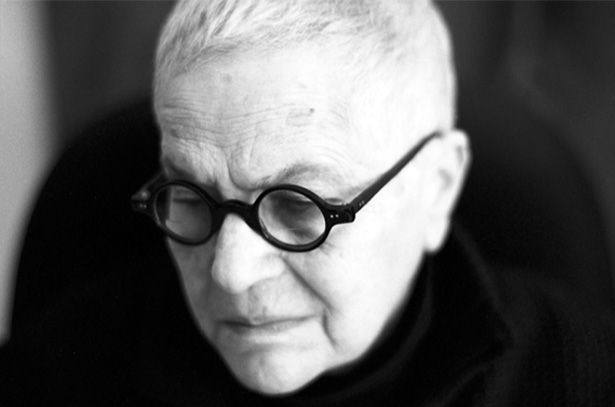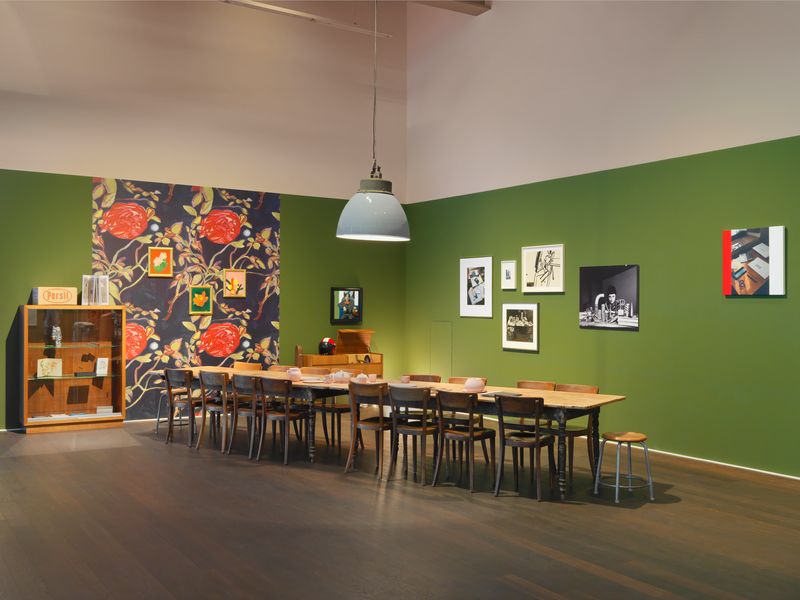For its winter exhibition, Hauser & Wirth Zürich has transformed its second floor gallery into an immersive domestic environment, with unique artworks, editions, music and books by Hauser & Wirth artists displayed amongst the furniture, fabrics and tchotchkes that make up a personal habitat. Emphasising the quotidian, ‘Salon d’Hiver’ suggests how these art objects and books might reside as part of a private collection. Visiting the exhibition feels like entering a person’s home, and visitors are encouraged to interact with the installation as such; as a space in which to meet, read, listen to music and spend time throughout the exhibition’s duration.
Inspired by the activity of Hauser & Wirth Editions and Hauser & Wirth Publications, this exhibition grew from a desire to showcase the varied activity of the gallery’s two key initiatives. With over 100 titles created since its founding in 1992, Hauser & Wirth Publications provides its artists with the opportunity to create distinctive, extensive and high-quality presentations in print, in order to promote discussion and appreciation by bringing new, sometimes overlooked, aspects of an artist’s creativity into focus. In 2013, the gallery launched Hauser & Wirth Editions, an initiative focused exclusively on prints, editions and multiples. The aim is to highlight the critical significance of this rich area of artistic endeavour and foster greater awareness and appreciation for it.
Editions and publications are important pursuits for many of Hauser & Wirth’s artists working across different media. Along with traditional printmaking, editioned works range in diverse media from photography to sculpture, and music to video. Louise Bourgeois, for example, considered printmaking central to her practice, working on her own small press at home, creating plates and enhancing proofs by hand with pen, pencil and watercolour. She also had active relationships with printers and publishers when creating editions and publications. Challenging traditional lithography, Mary Heilmann has a painterly approach, often working with fluid pigment directly onto plates in intense colour. She allows the material to flow on the plate, which is evidenced in her final prints.
For artists like Dieter Roth and Allan Kaprow, art and daily life are one and the same. Questioning the printmaking process, Roth integrated unorthodox materials into his prints – such as foodstuffs – that would decay over time. Creating multiples and copies was, in fact, central to Roth’s practice as he experimented with all possible print techniques throughout his career. Kaprow – who pioneered the Environment and Happening – actively used posters and instructional Activity Booklets.
New artworks will be regularly installed from late November to late February, so the installation will change just as a home would through a process of redecorating. Even the selection of various wallpapers have been created by artists, and includes Paul McCarthy’s seasonal, subversive army of Santa Claus-like figures, buttplugs in hand; a dynamic floral design by Caro Niederer; and Pipilotti Rist’s tessellating arms and hands, like a mandala rendered in kaleidoscopic patterns across the paper. ‘Salon d’Hiver’ exchanges the white cube format of the art gallery exhibition for an experience that is more accessible and comfortable, an inviting salon in which to explore artworks, books and ideas during the cold winter months.
The exhibition is accompanied by a programme of events, lectures, workshops and panel discussions.
Discover more about 'Salon d'Hiver. Books – Prints – Multiples' here













